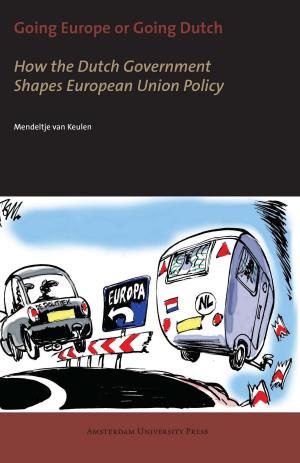The European Union has a huge impact on the government and policies of its member states. It is thus surprising that the ways in which national governments attempt to shape EU policies is a topic seriously understudied. This book discusses relevant academic insights and presents a framework for analysing national interest representation. The empirical part discusses the EU policy of the Dutch government throughout the 1990s and presents a reconstuction of the negotiations on two internal market directives. It thereby offers both for academics and practitioners a clear oversight of the making of European poliices and the relevant moments and instruments for national interest representation.

